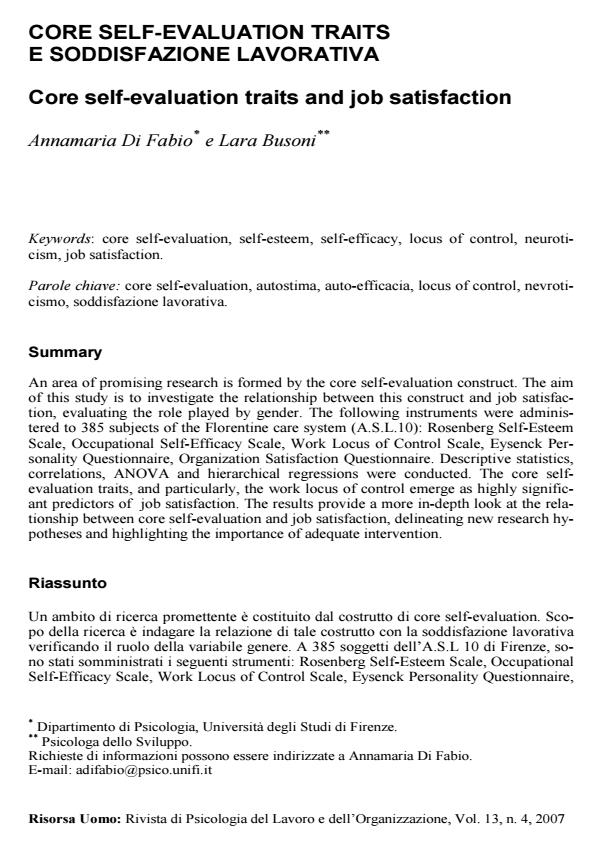Core self-evaluation traits e soddisfazione lavorativa
Titolo Rivista RISORSA UOMO
Autori/Curatori Annamaria Di Fabio, Lara Busoni
Anno di pubblicazione 2008 Fascicolo 2007/4
Lingua Italiano Numero pagine 15 P. 517-531 Dimensione file 91 KB
DOI
Il DOI è il codice a barre della proprietà intellettuale: per saperne di più
clicca qui
Qui sotto puoi vedere in anteprima la prima pagina di questo articolo.
Se questo articolo ti interessa, lo puoi acquistare (e scaricare in formato pdf) seguendo le facili indicazioni per acquistare il download credit. Acquista Download Credits per scaricare questo Articolo in formato PDF

FrancoAngeli è membro della Publishers International Linking Association, Inc (PILA), associazione indipendente e non profit per facilitare (attraverso i servizi tecnologici implementati da CrossRef.org) l’accesso degli studiosi ai contenuti digitali nelle pubblicazioni professionali e scientifiche.
An area of promising research is formed by the core self-evaluation construct. The aim of this study is to investigate the relationship between this construct and job satisfaction, evaluating the role played by gender. The following instruments were administered to 385 subjects of the Florentine care system (A.S.L.10): Rosenberg Self-Esteem Scale, Occupational Self-Efficacy Scale, Work Locus of Control Scale, Eysenck Personality Questionnaire, Organization Satisfaction Questionnaire. Descriptive statistics, correlations, ANOVA and hierarchical regressions were conducted. The core selfevaluation traits, and particularly, the work locus of control emerge as highly significant predictors of job satisfaction. The results provide a more in-depth look at the relationship between core self-evaluation and job satisfaction, delineating new research hypotheses and highlighting the importance of adequate intervention.
Annamaria Di Fabio, Lara Busoni, Core self-evaluation traits e soddisfazione lavorativa in "RISORSA UOMO " 4/2007, pp 517-531, DOI: